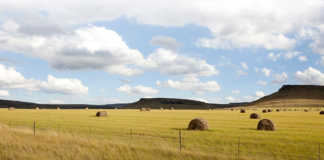The college is an initiative of the Bothaville Maize Capital Chamber of Commerce. “A business plan for the college has been compiled by the Business School of the North-West University (NWU) and has received wide support from the agricultural sector. If all goes according to plan, we will start offering a number of short courses in the second half of the year,” said principal Marius Heyns.
The college is an Article 21 company with a non profit motive and a joint venture between NWU, Standard Bank SA, the Bothaville local authority and Bothaville district agricultural union. Negotiations were underway to secure the participation of other role players such as Grain SA, Senwes, Volkswagen SA and Sasol Nitro, according to Heyns. He said there was a need for private education with minimum government interference due to the deteriorating quality of education at most state agricultural colleges.
Private institutions were professionally managed and excluded from political and labour turmoil such as teacher strikes and ongoing disputes between government and officials. A three-year National Diploma with a NQF grading equal to that of a BA degree will be offered. The ‘Action Learning Methodology’ will apply, rotating six months’ theory and practice. The practical phases will be done under the close supervision of mentorship farmers.
The approach will be modular, allowing students with exceptional circumstances to complete the diploma within five years. The curriculum will also include one-year National Certificate courses and short practical, technical or skills courses. Heyns said the choice fell on Bothaville because the town has played an integral part in the agricultural sector and was located within a radius of 100km from agricultural hubs such as Kroonstad, Welkom, Klerksdorp, Parys and Potchefstroom.
These hubs are hosts to established farmers prepared to serve as mentors. Heyns said the NWU business plan showed there was a need for quality, action-driven agricultural education and that the college’s aims complemented the vision and objectives set out in chapters 5, 6 and 9 of the National Development Plan. “All facts taken into consideration, it is clear that under the conditions as set out in the business plan, this college can be considered as viable and would be contributing to the provision of quality training in a highly specialised field at a very competitive price.”












